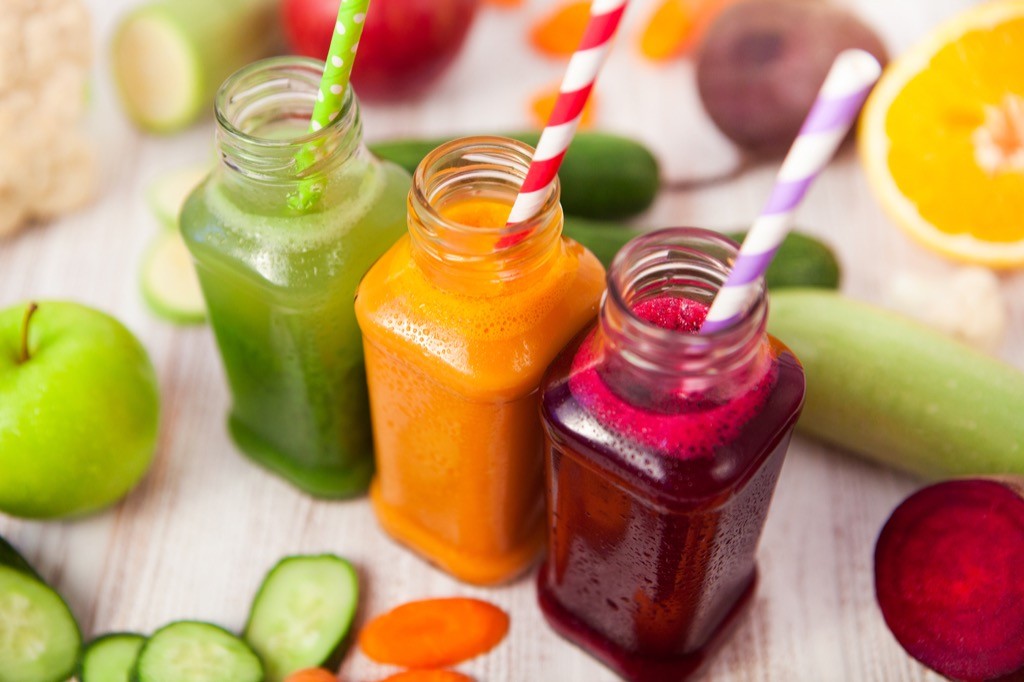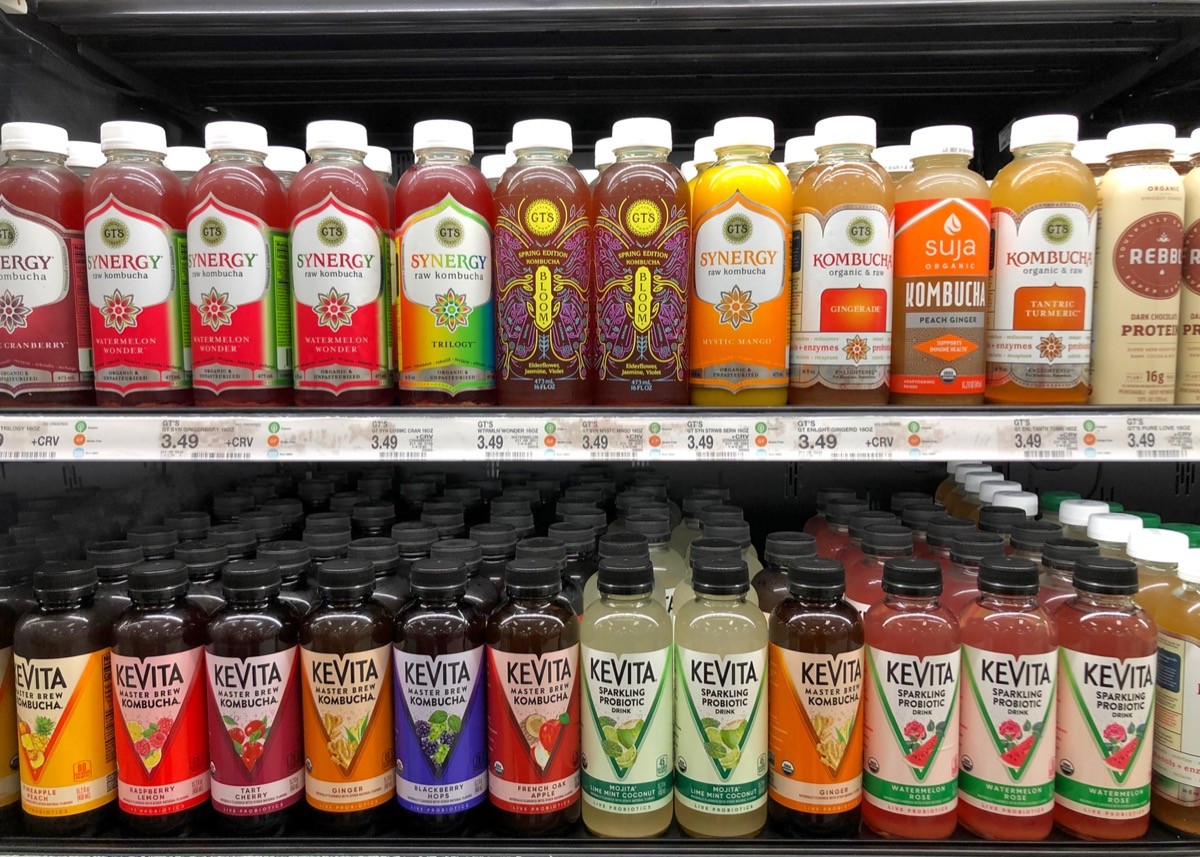8 “Healthy” Habits That Are Wrecking Your Body, Doctors Say

If you want to live a long, happy life, then taking the best possible care of your health is a no-brainer. The problem is, sometimes it’s hard to know what’s good for you and what isn’t. Study findings often conflict (is an occasional glass of wine good for you, or not so much?), and different doctors often give different advice—just one reason many people choose to get a second opinion when making major medical decisions. Are some of the things you’re incorporating into your routine not as good for you as you thought? Read on for eight so-called “healthy” habits that may, in fact, not be so healthy after all.
RELATED:
1
Exercising every day.

Let’s get one thing straight: No one is questioning the importance of regular exercise. Moving your body can boost your heart health, help keep you at a healthy weight, improve your mood, and give you more energy, according to Mayo Clinic—and those are just a few of the benefits exercise offers. But if you’re going hard and working up a sweat every day, experts say it’s important to cut yourself a break.
“There is absolutely such a thing as too much of a good thing,” board-certified family physician Laura Purdy, MD, tells Best Life. “Overuse and overtraining injuries are very common. Things like tendinitis, muscle strains, stress fractures, and even just fatigue and exhaustion can happen when we push our bodies too far, or farther than they want to go.”
“So, it is very important that we exercise in moderation, and only when we have been cleared by our doctor and know that activities are safe for us to engage in,” she adds.
2
Cutting out all sugar.

A pile of evidence shows how bad sugar is for us—especially the refined sugars you’ll find in many processed foods, baked goods, and other treats. “Refined sugar intake is linked to conditions like obesity, Type 2 diabetes, and heart disease,” says Healthline.
But moderation is the key to all things, including sugar consumption.
The American Heart Association (AHA) recommends “limiting added sugars to no more than 6 percent of calories each day,” adding that, for the majority of women in the U.S., “that’s no more than 100 calories per day, or about 6 teaspoons of sugar. For men, it’s 150 calories per day, or about 9 teaspoons.”
An interesting note: The AHA doesn’t distinguish between types of sugar, so while you may think that so-called “natural” sugars are better, that may not matter so much.
“Your body has no idea if [the sugar in your diet] came from table sugar, honey, or agave nectar. It simply sees monosaccharide sugar molecules,” Amy Goodson, RD, told Healthline.
However, there are no health benefits from refined sugars. “Naturally occurring sugar found in fresh fruit has nutritional benefits and should be a daily part of your diet,” advises Keri Gans, RDN, registered dietitian nutritionist and author of The Small Change Diet.
3
Cutting out all carbs.

Likewise, cutting out all carbs in an effort to lose weight is not the healthiest choice.
“Carbs are not the enemy and we need to stop treating them as such,” says Gans. “In fact, they are your body’s preferred source of energy, especially your brain. The more you avoid carbs, the more you are simply going to want them.”
Instead, the Centers for Disease Control and Prevention (CDC) recommends choosing complex carbs that are high in healthy fiber and don’t cause blood sugar spikes like simple and refined carbs.
Examples of complex carbs include whole wheat bread, quinoa, sweet potatoes, beans, and lentils.
4
Unwinding with a glass of wine.

Drinking a glass of red wine to unwind at the end of the day might not be the heart-healthy sip you hope it is (and that previous studies have touted it to be).
A Nov. 2022 study published in JAMA Network Open found that drinking any amount of alcohol is detrimental to your health.
Marissa Esser, PhD, lead author of the study, told The New York Times that even if you’re following federal guidelines for safe alcohol consumption, “there are risks even within these levels, especially for certain types of cancer and some forms of cardiovascular disease.”
So much evidence has built up on the negative consequences of alcohol that in Jan. 2025, then-U.S. Surgeon General Vivek Murthy, MD, released an advisory report calling for cancer warnings on alcoholic beverages. He detailed findings that drinking “increased risk for at least seven different types of cancer, including breast (in women), colorectum, esophagus, voice box, liver, mouth, and throat.”
5
Skipping breakfast.

Intermittent fasting is one of the most popular health trends today, touting for helping people lose weight, lower blood sugar levels, and reduce inflammation. But skipping meals, specifically breakfast, might not always be the healthy option that we believe it to be.
Trista Best, RD, a registered dietitian with Balance One Supplements, previously explained to Best Life that skipping breakfast can actually lead to weight gain and overeating.
“Skipping breakfast can increase hunger cravings because it leads to a drop in blood sugar levels, triggering the release of hormones that signal the body to seek out food, often leading to cravings for sugary or high-calorie foods,” she said. “Additionally, skipping breakfast can lead to overeating later in the day as hunger builds up, contributing to weight gain over time.”
It can also cause your energy levels to drop, affect concentration, and cause gastrointestinal issues.
6
Sleeping in on the weekends.

The Sleep Foundation says most adults need between seven and nine hours of sleep each night for optimal health. But if you fall short of that amount, you may not be able to make up for it by sleeping more on your days off.
“It is actually better and healthier for our bodies to have a consistent schedule,” Purdy explains. “Our brains, our bodies, our systems, and our hormones function best when we give them a very predictable cycle of the right amount of wake and sleep time.”
“If you have a particularly exhausting week, are ill, or are traveling, it may be necessary to sleep in from time to time. But making a habit of having an irregular sleep schedule can actually lead to more harm than good when it comes to sleep hygiene and getting the rest you need at night,” she adds.
7
Doing a juice cleanse.

When you want to shed pounds fast or optimize your energy levels during the winter, you may think a juice cleanse is the way to go. But new research tells us that you might want to think again.
A Jan. 2025 study published in the journal Nutrients found that following a juice cleanse for just three days can severely disrupt your body’s “good” bacteria and “rapidly alter your microbiome, particularly in the mouth, in ways that could lead to inflammation and gut health issues,” as Best Life previously reported.
8
Drinking kombucha.

While it’s not necessary to cut out all sugar, it’s still a good idea to keep your consumption in check—but sometimes it’s harder than you think.
Plenty of people are guzzling kombucha these days in an attempt to improve their gut health. But the fizzy brew may be adding unnecessary—and empty—calories to your daily diet.
“Sugar-sweetened beverages (SSBs) or sugary drinks are leading sources of added sugars in the American diet,” the CDC warns—and that includes store-bought kombucha, which contains an average of 20-24 grams of sugar per bottle.
“Frequently drinking sugar-sweetened beverages is associated with weight gain, obesity, Type 2 diabetes, heart disease, kidney diseases, non-alcoholic liver disease, tooth decay and cavities, and gout, a type of arthritis,” the CDC points out.